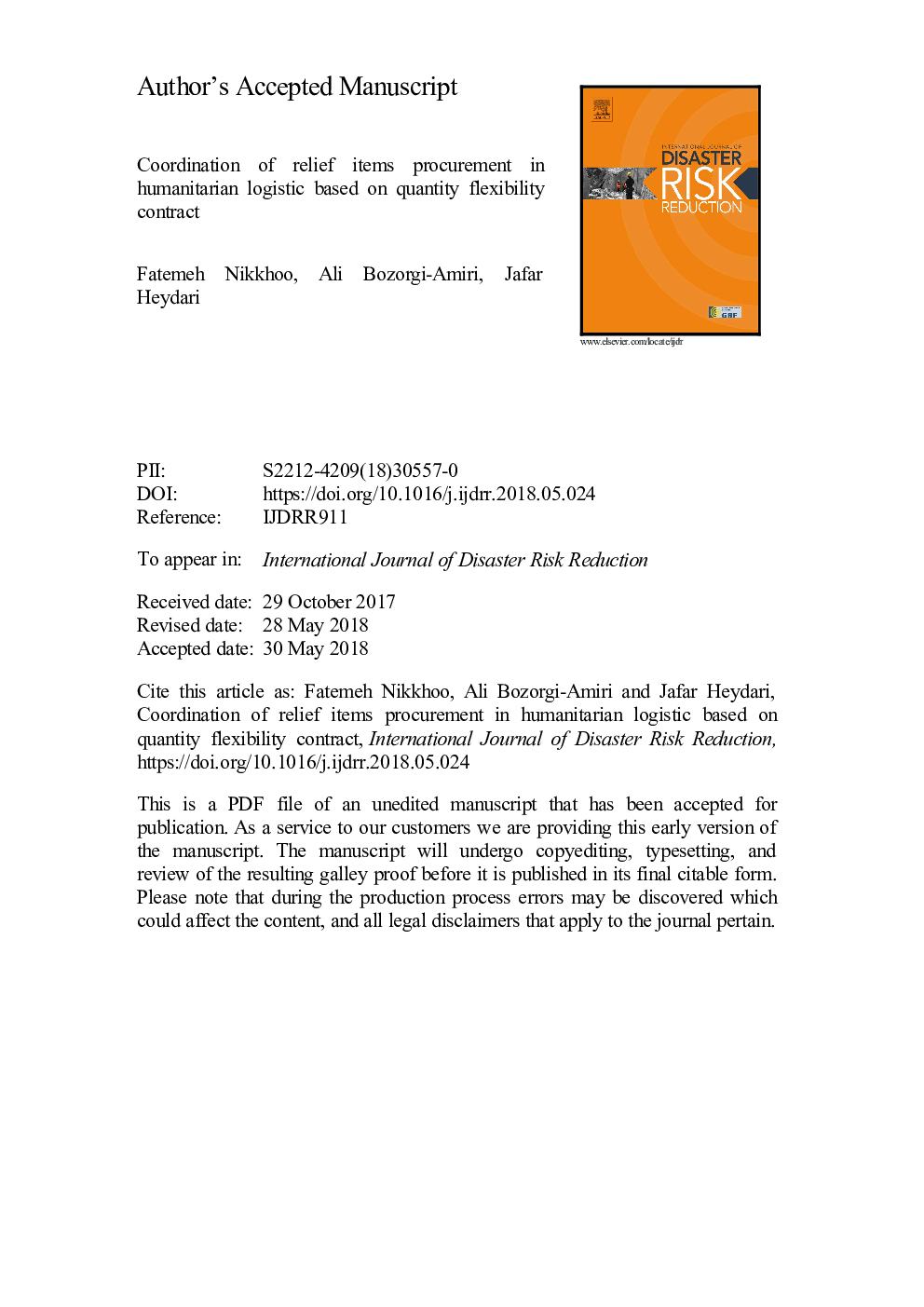| Article ID | Journal | Published Year | Pages | File Type |
|---|---|---|---|---|
| 7471126 | International Journal of Disaster Risk Reduction | 2018 | 21 Pages |
Abstract
Nowadays, coordination of relief items procurement in humanitarian logistics has become one of the main challenges of disaster management. In this paper, we utilize a quantity flexibility contract (QFC) to coordinate ordering activities in a three-echelon relief chain. This multi-echelon supply chain consists of a relief organization (i.e., NGO), one relief item supplier, and affected areas. In the proposed QFC, initially, the relief organization places an order before the disaster strikes and is committed to purchasing the initial quantity no less than a previously agreed amount. On the other hand, the supplier is committed to providing up to a certain amount above the initial order, if needed. Expected profit functions of relief chain members include transportation cost, inventory cost, the manufacturing cost of relief items, shortage cost, salvage value, and satisfaction level of affected areas. Our findings show that, under demand uncertainty, the proposed QFC not only prevents significant losses at relief organization but also enhances satisfaction level of the affected areas. Finally, the performance of the proposed coordination model is examined via various numerical experiments and managerial insights are extracted.
Keywords
Related Topics
Physical Sciences and Engineering
Earth and Planetary Sciences
Geophysics
Authors
Fatemeh Nikkhoo, Ali Bozorgi-Amiri, Jafar Heydari,
